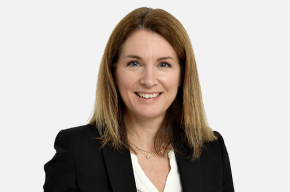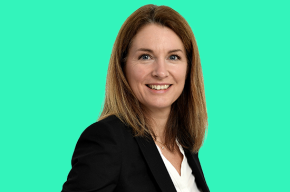By Sophie Hubert, Chief Commercial Officer, France
The IPEM Paris 2023 forum, which I had the pleasure of attending, brought together more than 6,000 private equity players despite the mixed outlook for the industry. Although the sector recorded its lowest inflows in 2022 since 2015, and this trend continued throughout 2023, there remain solid fundamentals driving growth. With ELTIF 2.0 notably becoming applicable from today, French players are holding firm and are set to benefit from tailwinds offering numerous opportunities.
The markets are not all doom and gloom
The monetary tightening led by central banks in 2023 led to some LPs pursuing liquidity via the secondary market. But this should not overshadow the gradual recovery of private equity dealmaking in France, which remained resilient in Q2 2023 with PE deal value growing quarter-over-quarter to stand at €28.1 billion.
It is worth noting that Paris remains a major financial centre for venture capital, more specifically in later growth stage. This has been made possible, in part, thanks to the groundwork laid by the country’s Ministry of the Economy and Finance through its Tibi regulation scheme, which favours entrepreneurship. Moreover, two of the three mega-deals (over €1 billion) finalised in Europe at the start of 2023 involved French players.
Supporting measures have been deployed
The private equity market should soon benefit from a series of measures designed to make it more flexible and stimulate the business. The ELTIF 2.0 regulation came into force on 9 April 2023 and is applicable from today, 10 January 2024. It will be instrumental in ensuring better distribution conditions for low-liquidity products. Modelled on the European UCITS passport, this new version will enable private equity funds to be marketed not only to regular professional clients but also to retail investors in the EU’s 27 member states.
This is highly a relevant development for French funds, which can be viewed as “protectionist”, as evidenced by a drastic drop in non-EU foreign investment over the past three years, amounting to around 10.5% of transactions. This stands in sharp discrepancy compared to France’s European neighbours, whose average share of deals with non-EU players is twice as high.
It’s now up to French firms to play their part in the democratisation of private equity and reverse this trend. Even more so in a context where macroeconomic conditions are tending to ease, with clearer guidance from central banks and a stabilisation of inflation in the eurozone. French lawmakers have already paved the way, adopting the Green Industry Act on 23 October 2023, which includes measures to adapt French law to the new ELTIF products and facilitate their inclusion in life insurance devices.
Let’s not underestimate French businesses
Two types of companies usually stand out in the French economy:
- Large, traditional companies with extensive acquisition capabilities, building their growth through the integration of unlisted high potential enterprises, as illustrated by LVMH, L’Oréal and Pernod Ricard
- Family-owned SMEs with solid fundamentals, still exporting too little compared to their German cousins, but with relatively sound financial health (reasonable debt, ample free cash-flows) and overall resilient business models (pricing power, recurring revenues, local integration)
This performance is set to gather momentum, given the public investments planned under the banner of re-industrialisation and economic sovereignty, as reflected in the France 2030 initiative, as well as the more favourable macroeconomic context in France versus other European countries. Growth forecasts rank the country second in Europe, with 1.3% expected in 2024, compared to a G7 average of 1.2%.
France is also a strong performer when it comes to ESG, a topic that is increasingly high on the investor’s agenda. Spurred on by the Rixain and Copé-Zimmermann laws, which provide that boards include at least 40% women, and 30% among senior executives by 2027, significant progress has been made in recent years. Last year, Heidrick & Struggles reported that this 30% threshold had been reached by almost a third of the SBF 120. This is probably still too little, but France is ahead of the rest of the world and will benefit from this effort in allocation decisions.
Given the attractiveness of the French market, creation of new market standards, greater economic resilience, and investors in possession of dry powder to deploy, France and its financial players have every reason to be confident heading into 2024 and beyond!





